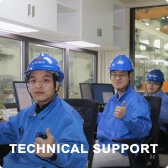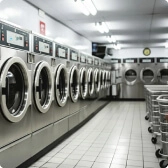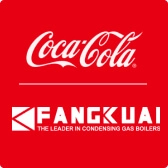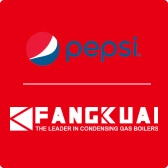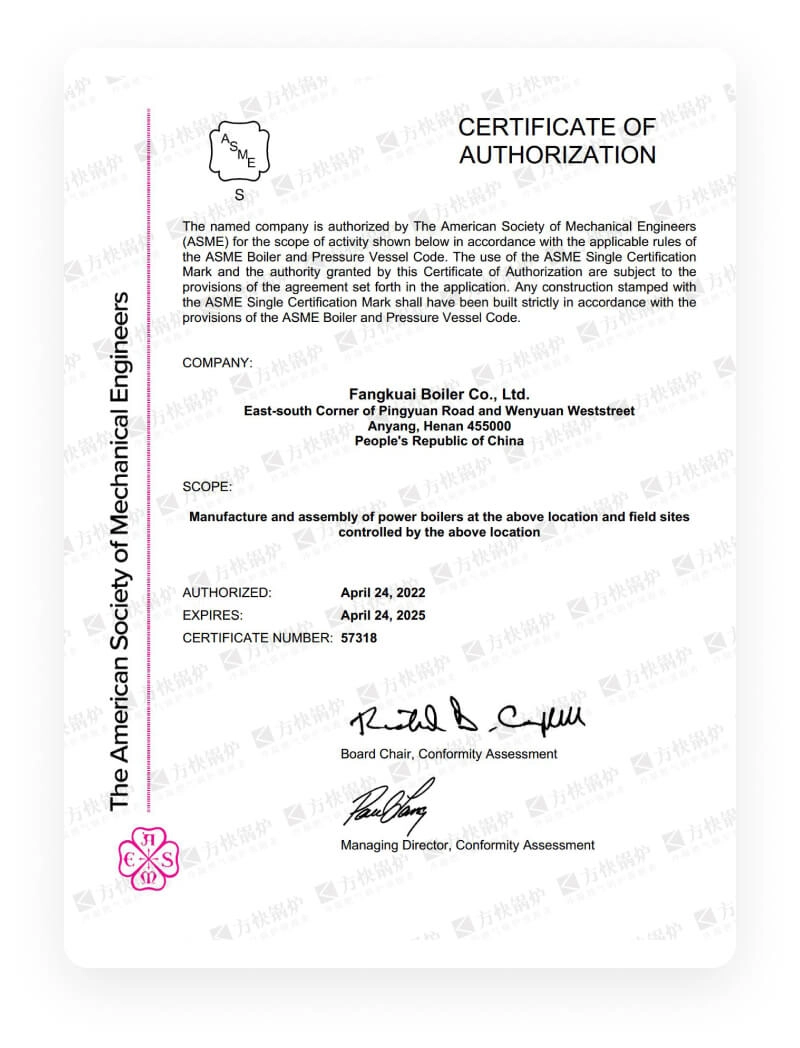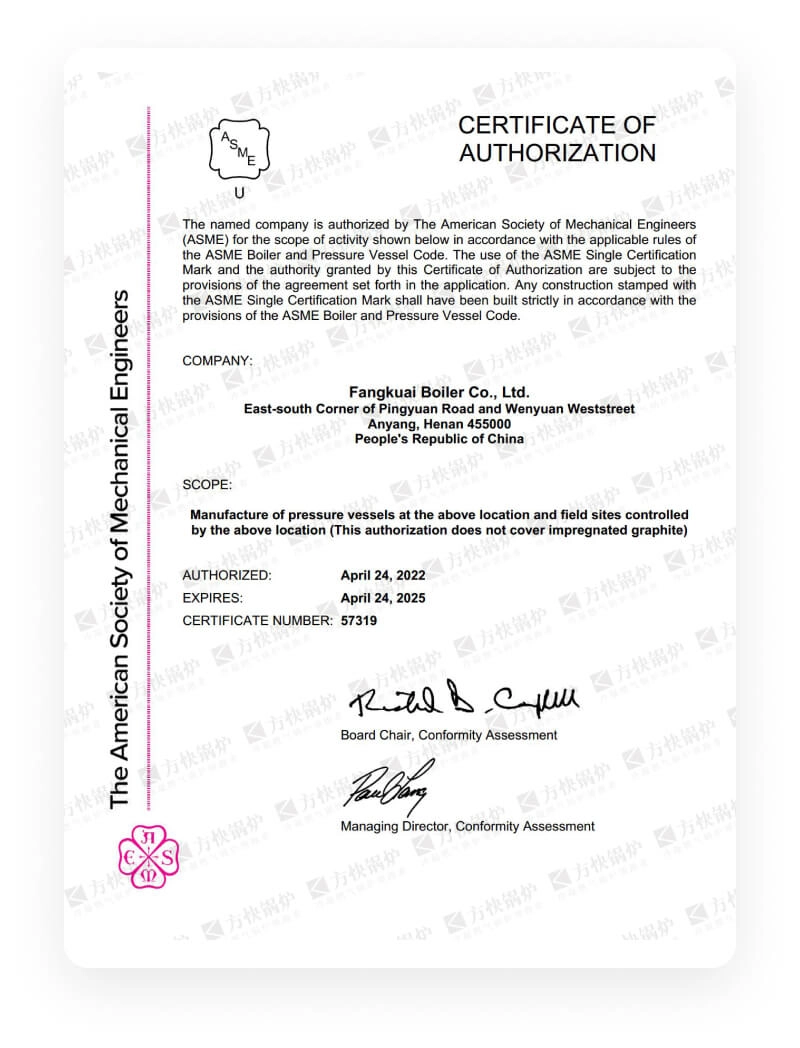How to Choose the Right Boiler for Supplying 500,000 BTU of Heat per Day
date: 2024-09-05
Page preview:
Introduction
Are you in need of a reliable boiler to supply 500,000 BTU of heat per day? Choosing the right boiler is crucial to ensure optimal heating efficiency and cost-effectiveness. In this blog post, we will explore the key factors to consider when selecting a boiler for your heating needs. From calculating heat demand to evaluating property size and layout, we will provide expert insights to help you make an informed decision. Let's delve into the world of boilers and find the perfect solution for your heating requirements.

Factors to Consider
Heat Demand Calculation
Determining the heat load of your space is the first step in selecting the right boiler. Factors like square footage, insulation levels, and desired indoor temperatures play a crucial role in this calculation. While the specific heat load for 500,000 BTU per day is significant, a detailed assessment will ensure the boiler meets your heating needs efficiently.
Fuel Type
Consider the type of fuel available in your area and its cost when choosing a boiler. Options like natural gas, propane, oil, and biomass offer varying benefits and considerations. Selecting a fuel type that aligns with your budget and environmental preferences is essential for long-term sustainability.
Boiler Efficiency
The efficiency of a boiler impacts its operating costs and energy consumption. High-efficiency boilers utilize fuel more effectively, leading to lower fuel consumption and reduced expenses. Look for boilers with superior efficiency ratings, such as condensing boilers, to maximize energy savings.
Boiler Type
Different boiler types, including condensing, combi, and conventional boilers, offer unique advantages. Condensing boilers, for instance, recover heat from exhaust gases, enhancing energy efficiency. Assess the suitability of each type based on your heating requirements and preferences to make an informed decision.
Heat Load Calculation
When it comes to selecting a boiler for your specific requirement of 500,000 BTU of heat per day, one of the crucial factors to consider is the accurate calculation of the heat load. This calculation forms the foundation for determining the right-sized boiler to meet your heating needs effectively. Here are some key points to keep in mind when calculating the heat load:
-
Square Footage: The size of the space that requires heating plays a significant role in determining the heat load. Larger spaces will require more heat to maintain a comfortable temperature.
-
Insulation Level: The quality of insulation in the building affects the heat loss, which in turn impacts the heat load calculation. Well-insulated buildings retain heat better and may require less heating.
-
Desired Indoor Temperature: The temperature you want to maintain indoors also influences the heat load calculation. Warmer temperatures will require more heat output from the boiler to achieve and sustain the desired comfort level.
By considering these factors and conducting a thorough heat load calculation, you can ensure that the boiler you choose is appropriately sized to meet your specific heating requirements. This step is essential in optimizing energy efficiency, reducing operating costs, and ensuring a comfortable indoor environment. Stay tuned for more insights on factors to consider when selecting a boiler for your 500,000 BTU heat supply need.
Fuel Type
When considering the fuel type for your boiler that needs to supply 500,000 BTU of heat per day, the availability and cost are key factors to weigh. Understanding the options like natural gas, propane, oil, or biomass can help in making an informed decision. Each fuel type has its own set of benefits and considerations, so it's essential to choose one that aligns with your budget and environmental preferences.
-
Assessing the availability of different fuel types in your area is crucial for ensuring a consistent heat supply. Factors such as delivery logistics and local infrastructure play a role in determining the feasibility of using a specific fuel type. By evaluating these aspects, you can select a fuel source that is readily accessible and reliable for your boiler operation.
-
Cost-effectiveness is another critical aspect to consider when choosing a fuel type for your boiler. Analyzing the pricing trends and long-term affordability of fuels like natural gas or oil can help in determining the most cost-effective option. Balancing the initial investment with ongoing operational expenses is essential for maximizing the economic efficiency of your heating system.
-
Environmental impact is a significant consideration in today's context of sustainability. Opting for a fuel type with lower emissions, such as natural gas or biomass, can contribute to reducing your carbon footprint. By prioritizing environmentally friendly fuel sources, you can align your heating system with eco-conscious practices and regulations while ensuring efficient heat supply for your space.
Boiler Efficiency
In the realm of boiler selection, efficiency stands as a paramount factor that directly impacts operational costs and environmental sustainability. A high-efficiency boiler maximizes the utilization of fuel energy, leading to reduced fuel consumption and lower operating expenses. By investing in a boiler that prioritizes efficiency, you not only save money in the long run but also contribute to a greener planet. The innovative technologies integrated into modern boilers, such as heat recovery systems and advanced combustion techniques, elevate their efficiency levels to unprecedented heights.
When considering the efficiency of a boiler, it's essential to comprehend how it translates into tangible benefits for your heating system. An efficient boiler ensures that a significant portion of the fuel's energy output is converted into usable heat, minimizing wastage and maximizing performance. The utilization of cutting-edge engineering solutions, such as precise heat exchange mechanisms and intelligent control systems, enhances the overall efficiency of the boiler. Choosing a high-efficiency boiler guarantees optimal performance and cost-effectiveness over the boiler's lifespan.
Moreover, the quest for efficiency in boiler technology extends beyond mere energy savings. A high-efficiency boiler operates seamlessly, delivering consistent heat output with minimal fluctuations. This stability in performance not only enhances comfort levels within your space but also reduces the strain on the boiler components, prolonging its durability and reliability. Investing in an efficient boiler not only enhances energy savings but also ensures a comfortable and reliable heating experience.
In essence, the pursuit of efficiency in selecting a boiler transcends mere numbers on a spec sheet. It signifies a commitment to sustainability, cost-effectiveness, and operational excellence in your heating system. By prioritizing efficiency in your boiler selection process, you pave the way for a more sustainable and efficient heating solution that aligns with your long-term goals and values. Make efficiency a cornerstone in your boiler selection journey and reap the rewards of cost savings, environmental stewardship, and heating stability.
Boiler Type
Understanding Different Boiler Types
When it comes to selecting a boiler for supplying 500,000 BTU of heat per day, understanding the different types of boilers available is essential. Each boiler type has its unique characteristics and benefits that cater to specific heating requirements.
Condensing Boilers: Efficiency at Its Best
Condensing boilers are known for their exceptional energy efficiency, making them a popular choice for modern heating systems. These boilers utilize heat recovery technology to extract additional heat from the exhaust gases, maximizing energy utilization and reducing fuel consumption.
Combi Boilers: Space-Saving Solution
Combi boilers, also known as combination boilers, are a space-saving option that combines the functions of a water heater and central heating boiler in one unit. This type of boiler is ideal for homes with limited space and provides instant hot water on demand.
Conventional Boilers: Reliable and Versatile
Conventional boilers, also known as regular or traditional boilers, have been a staple in heating systems for many years. These boilers feature a separate hot water cylinder and cold water storage tank, offering a reliable and versatile heating solution for various applications.
Choosing the Right Boiler Type
When selecting a boiler type for your 500,000 BTU heat supply requirement, consider factors such as space availability, energy efficiency, and hot water demand. Each boiler type has its advantages and considerations, so it's essential to choose the one that best suits your specific heating needs.
Conclusion
When it comes to selecting the right fuel type for your boiler, several factors should be taken into consideration to ensure optimal performance and efficiency. Here are some key points to keep in mind when choosing the fuel type for your heating needs:
Boiler Capacity
When it comes to selecting a boiler for supplying 500,000 BTU of heat per day, determining the appropriate boiler capacity is crucial. Here are some key considerations to keep in mind:
-
Accurate Sizing: Ensuring that the boiler capacity aligns with the heat load calculation is essential for optimal performance. Oversized boilers can lead to inefficiencies, while undersized boilers may struggle to meet the heat demand effectively.
-
Matching Capacity: Select a boiler capacity that not only meets the 500,000 BTU heat supply requirement but also allows for potential variations in heat demand. Having a buffer capacity can ensure consistent and reliable heat supply.
-
Operational Efficiency: Choosing the right boiler capacity can impact the overall efficiency of the heating system. A properly sized boiler will operate more efficiently, leading to energy savings and reduced operating costs.
-
Future Considerations: Anticipating future changes in heating requirements or building expansions is crucial when determining the boiler capacity. Selecting a boiler with adequate capacity for potential growth can prevent the need for premature upgrades.
When selecting a boiler, it's essential to consider the water pressure within your property. Different boilers have specific water pressure requirements to operate optimally. Ensuring that the existing water pressure is compatible with the selected boiler is crucial for its efficient performance. Low water pressure can lead to issues such as reduced heat output and inefficient heating. Therefore, it's vital to assess the water pressure in your property before choosing a boiler to avoid any potential problems.
Operating Pressure
When selecting a boiler for your specific heat supply requirement of 500,000 BTU per day, considering the operating pressure is crucial. The operating pressure of a boiler determines its suitability for different applications. Higher pressure boilers are typically used in industrial settings where steam is required for various processes, while lower pressure boilers are more common in residential and commercial buildings for heating purposes. Understanding the operating pressure requirements of your space will help you choose a boiler that meets your specific needs efficiently.
Boilers with different operating pressures have distinct performance characteristics that can impact their effectiveness in delivering the required heat. Higher pressure boilers are designed to withstand the elevated pressures required for industrial processes, ensuring reliable steam generation. On the other hand, lower pressure boilers are optimized for heating applications in buildings, providing a consistent and comfortable heat supply. Considering the operating pressure ensures that the selected boiler aligns with the intended use and performs optimally in your specific environment.
The operating pressure of a boiler also influences its safety features and maintenance requirements. Higher pressure boilers are equipped with robust safety mechanisms to manage the increased pressure levels safely. Regular maintenance and inspections are essential for all boilers, but the requirements may vary based on the operating pressure. Understanding the maintenance protocols associated with different operating pressures will help you keep your boiler running smoothly and prolong its lifespan.
When evaluating the operating pressure of a boiler, it is essential to consider the system's overall efficiency and effectiveness. The operating pressure can impact the boiler's energy consumption, heat output, and overall performance. By selecting a boiler with the appropriate operating pressure for your heat supply needs, you can ensure optimal efficiency and reliable operation. Consulting with a professional boiler engineer can provide valuable insights into the operating pressure requirements and help you choose a boiler that meets your specific heating demands efficiently.
When it comes to selecting a boiler for your heating needs, understanding the different types available is essential. One common type is the Combi Boiler, known for its compact size and ability to provide both heating and hot water. Ideal for smaller properties with lower hot water demand, these boilers offer convenience and efficiency in one package. On the other hand, System Boilers work in conjunction with a separate hot water cylinder, making them suitable for medium to large properties with a higher hot water demand. Their ability to provide consistent heating and hot water makes them a popular choice for many homeowners.
Future Expansion
When considering the future expansion of your heating system, it is vital to anticipate any potential changes in your heating requirements. By assessing factors such as additional building usage, increased square footage, or enhanced heating demands, you can proactively plan for a boiler that can accommodate these changes. Selecting a boiler with scalability in mind can help prevent the need for premature replacements and ensure that your heating system can adapt to evolving needs seamlessly.
Taking into account the possibility of future growth or modifications to your heating setup is essential for long-term planning. By choosing a boiler that aligns with your expansion plans, you can avoid unnecessary costs and disruptions down the line. Whether it involves adding new heating zones, expanding the building footprint, or enhancing heating capabilities, a forward-thinking approach to boiler selection can provide flexibility and efficiency in meeting changing heating demands.
Future expansion considerations also extend to evaluating the compatibility of the selected boiler with emerging technologies or energy efficiency advancements. Keeping abreast of industry developments and incorporating them into your decision-making process can help future-proof your heating system. By selecting a boiler that can integrate with smart controls, renewable energy sources, or energy-saving features, you can ensure that your heating setup remains cutting-edge and environmentally sustainable.
In conclusion, choosing the right boiler for a 500,000 BTU heat demand is a critical decision that requires careful consideration of various factors. From calculating heat demand and evaluating property size to assessing insulation and heat loss, each step plays a crucial role in ensuring optimal heating efficiency and cost-effectiveness. By selecting the appropriate fuel type, analyzing water pressure, and understanding the different types of boilers available, you can make an informed decision that meets your heating requirements. Remember, a well-chosen boiler will not only provide reliable heat supply but also help you save on energy costs in the long run. So, take your time, do your research, and find the perfect boiler solution for your needs. Your comfort and savings depend on it.
Recommendations
When it comes to selecting a boiler to meet a daily heat supply of 500,000 BTU, seeking guidance from a professional boiler engineer is paramount. These experts possess the knowledge and experience to conduct a thorough assessment of your specific requirements, ensuring that the chosen boiler aligns perfectly with your heating needs. By consulting with a professional, you can receive tailored recommendations that take into account factors such as heat load calculation, fuel type, efficiency, and capacity, setting you on the path to optimal heating efficiency.
Consideration of fuel availability and cost is another crucial aspect of choosing the right boiler for your heat supply requirement. Evaluating the various fuel options, such as natural gas, propane, oil, or biomass, helps in determining the most economical and environmentally friendly choice. By selecting a fuel type that is both cost-effective and sustainable, you can enhance the overall efficiency and performance of your heating system, contributing to long-term energy savings and environmental responsibility.
When evaluating potential boilers, pay close attention to their efficiency ratings. Opting for high-efficiency boilers, such as condensing boilers that utilize heat recovery technology, can significantly reduce your operating costs while maximizing energy utilization. Efficiency is key to achieving optimal performance and cost-effectiveness in your heating system, making it a crucial factor to consider when selecting a boiler for your 500,000 BTU heat supply requirement.
Furthermore, sizing the boiler appropriately based on the heat load calculation is essential to ensure optimal performance and operational efficiency. Oversized boilers can lead to inefficiencies and unnecessary fuel consumption, while undersized boilers may struggle to meet the required heat demand. By accurately sizing the boiler to match your specific heating needs, you can achieve peak performance, cost-effectiveness, and reliability in your heating system, ultimately enhancing your overall heating experience.
Boiler Recommendation
Considering your need for 500,000 BTU heat supply per day, choosing the Fangkuai vacuum hot water boiler T7 series is a solution worth considering. Here are a few reasons and specific selection suggestions I recommend for you:
Recommended reasons
High efficiency:
Fangkuai T7 vacuum hot water boiler series adopts a new combustion and heat transfer deep coupling technology, breaking the traditional boiler + burner combination mode, and optimizing the matching of flame and heating surface through computer simulation, making the boiler operation more efficient and energy-saving. This technology can significantly improve thermal efficiency, ensuring that energy consumption is reduced while providing sufficient heat.
Low nitrogen emissions:
This series of boilers focuses on environmental performance in design, and can achieve low nitrogen emissions, which meets the current strict requirements for environmental protection. This is especially important for places that require long-term operation and have environmental protection requirements.
High adaptability:
Fangkuai T7 boiler is a high temperature tolerant type, suitable for areas with difficult environments such as high cold and high altitude. At the same time, its stable performance and efficient operation can ensure that heat requirements can be met under various working conditions.
Economical:
Although the specific price may vary depending on the model, configuration and market fluctuations, Fangkuai boilers are known for their high cost performance in the market. Its high efficiency and energy saving characteristics can significantly reduce operating costs and improve economic benefits in long-term operation.
Selection suggestions
Determine the specific model:
Fangkuai T7 series boilers are available in a variety of models, ranging from 2.8MW to 14MW. You need to determine the appropriate model based on your daily heat demand (500,000 BTU). Considering the heat unit conversion and the actual operating efficiency of the boiler, it is recommended to choose a model slightly larger than the theoretical calculation requirement to ensure redundancy.
Consider the fuel type:
Determine the type of fuel you use (such as natural gas, fuel oil, etc.) so that you can choose a boiler model that matches it. Fangkuai T7 series boilers support a variety of fuel types, but the specific configuration may vary from model to model.
Consult professional suppliers:
When choosing a boiler, it is recommended to consult a professional boiler supplier or engineer. They can provide customized advice and solutions based on your specific needs and site conditions to help you choose the most suitable boiler model and configuration.
Consider other factors:
In addition to the performance of the boiler itself, factors such as installation, maintenance, and operating costs also need to be considered. Make sure that the selected boiler can meet your long-term operating needs and has good after-sales service and technical support.
In summary, Fangkuai vacuum hot water boiler T7 series is an efficient, environmentally friendly and economical choice that can meet your daily 500,000 BTU heat supply needs. By choosing the right model and configuration, combined with professional installation and maintenance services, you will be able to obtain a stable and reliable heat supply and reduce operating costs.


